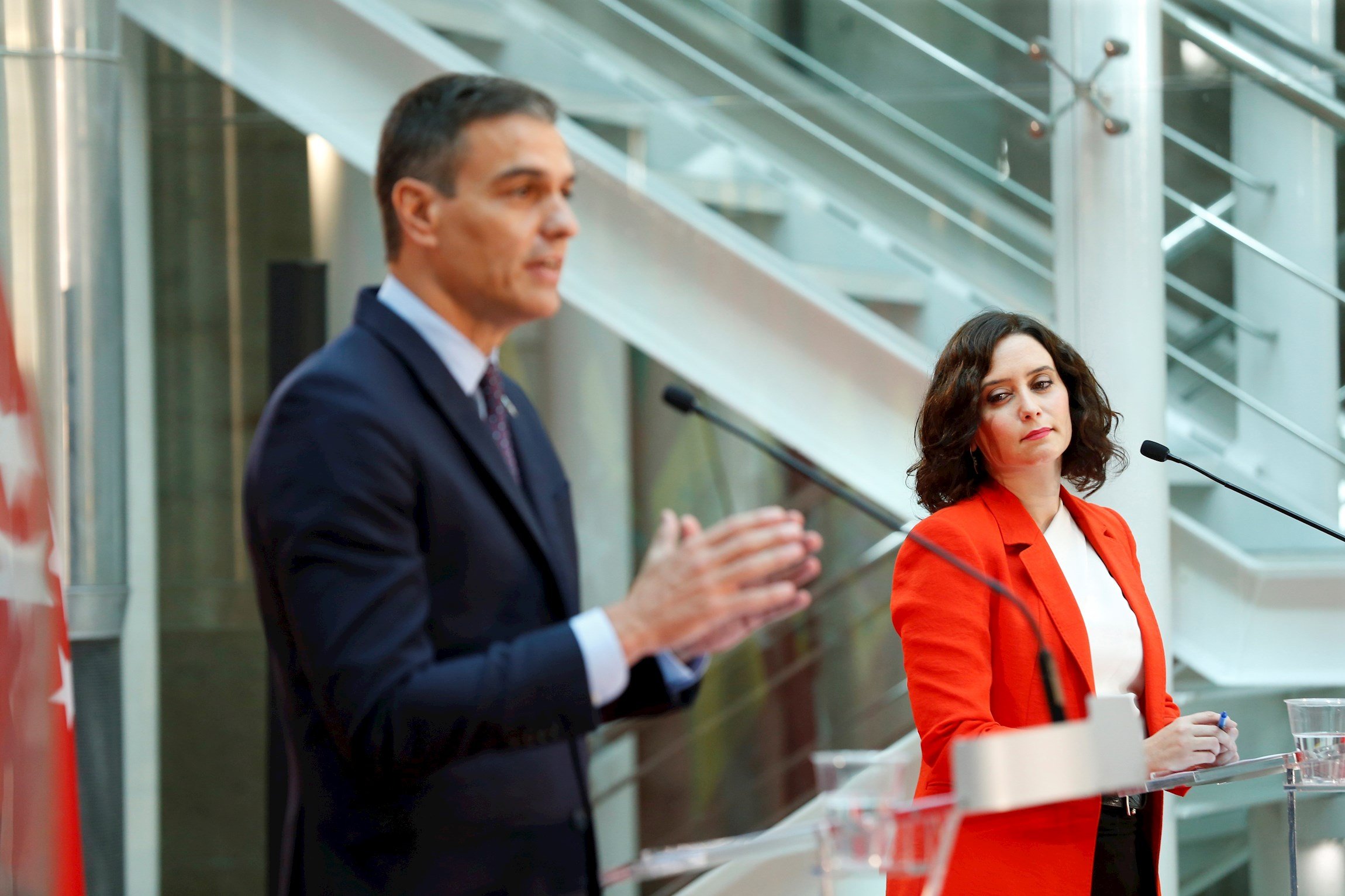Finally, agreement has been reached in the Community of Madrid. After days of political tension amidst the grave health crisis of the second coronavirus wave, the Spanish government and the Madrid regional government have reached an accord. Under its terms, the Spanish health ministry's recommended measures will be applied in the Spanish capital. But not only there. At this afternoon's meeting, a deal was made to establish uniform criteria when applying restrictions in Spanish municipalities of more than 100,000 inhabitants, as demanded by Madrid president Isabel Díaz Ayuso. Below this population level, it will be the autonomous communities that make decisions on possible restrictions. Of course, this agreement will have to be debated and approved on Wednesday in the Interterritorial Health Council, because it affects all the rest of Spain's regions. As Ayuso herself put it, "Madrid is Spain within Spain." And her demand was to standardize Spain.
The meeting of the Covid-19 Group, comprising Madrid and central government officials, lasted about two hours. As confirmed by health minister Salvador Illa in a press conference, he himself will propose to the communities tomorrow "coordinated action in public health". In practical terms, this will mean uniform criteria on mobility restrictions, social contacts, occupancy levels and capacity reinforcements. This would apply to all municipalities with more than 100,000 inhabitants, with a 14-day cumulative Covid-19 incidence of over 500, with positive PCR test rate of over 10% and an intensive care unit occupancy in the autonomous community of more than 35%. The specific details will be announced tomorrow.
The health minister explained that during today's meeting he had maintained contact with all regional health ministers to explain this measure, and he found "favourable signs" that the agreement will be adopted. If it is passed, he stated, it will be "good news" because it will mean it has been possible to "put into effect" the ministry's recommendations in the Community of Madrid as well as in other territories. Reading between the lines, Illa seemed to admit that this was a concession made to reach agreement on applying the vital Covid-19 measures needed in the Spanish capital.
If this measure receives the approval of the interterritorial health meeting tomorrow, Illa assures that it will enter into force "immediately" as soon as regions pass the agreement.
According to the Madrid regional government, both state and regional administrations "have agreed to continue negotiating the technical criteria on measures to restrict mobility and activity in the face of the evolution of the pandemic". Tomorrow, the Community of Madrid itself will defend these common criteria during the Interterritorial meeting, as well as the proposal to carry out PCR tests at departures through Madrid Barajas airport and strengthen testing centred on train services.
Easing of tensions
The latest meeting between the Spanish government and the Community of Madrid reached a deal after several failures - including Monday's meeting between Spanish minister Illa and his Madrid counterpart Enrique Ruiz Escudero. The goal was to straighten things out, after days of rising tensions, but it was not successful. The state was reluctant to take control of the situation and intervene in the Madrid autonomous government. Finally, Illa has had to give in to Ayuso in order to get the regional administration to apply restrictions to the entire Spanish capital.

